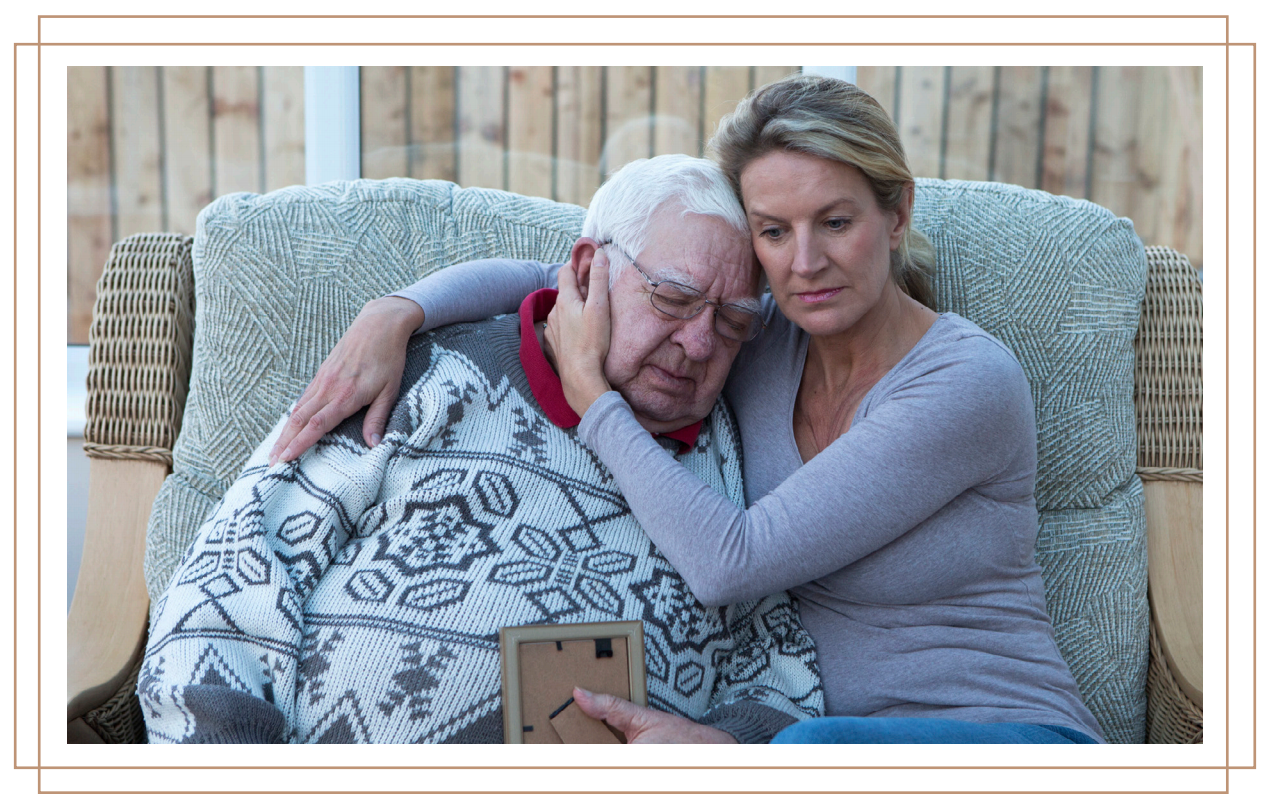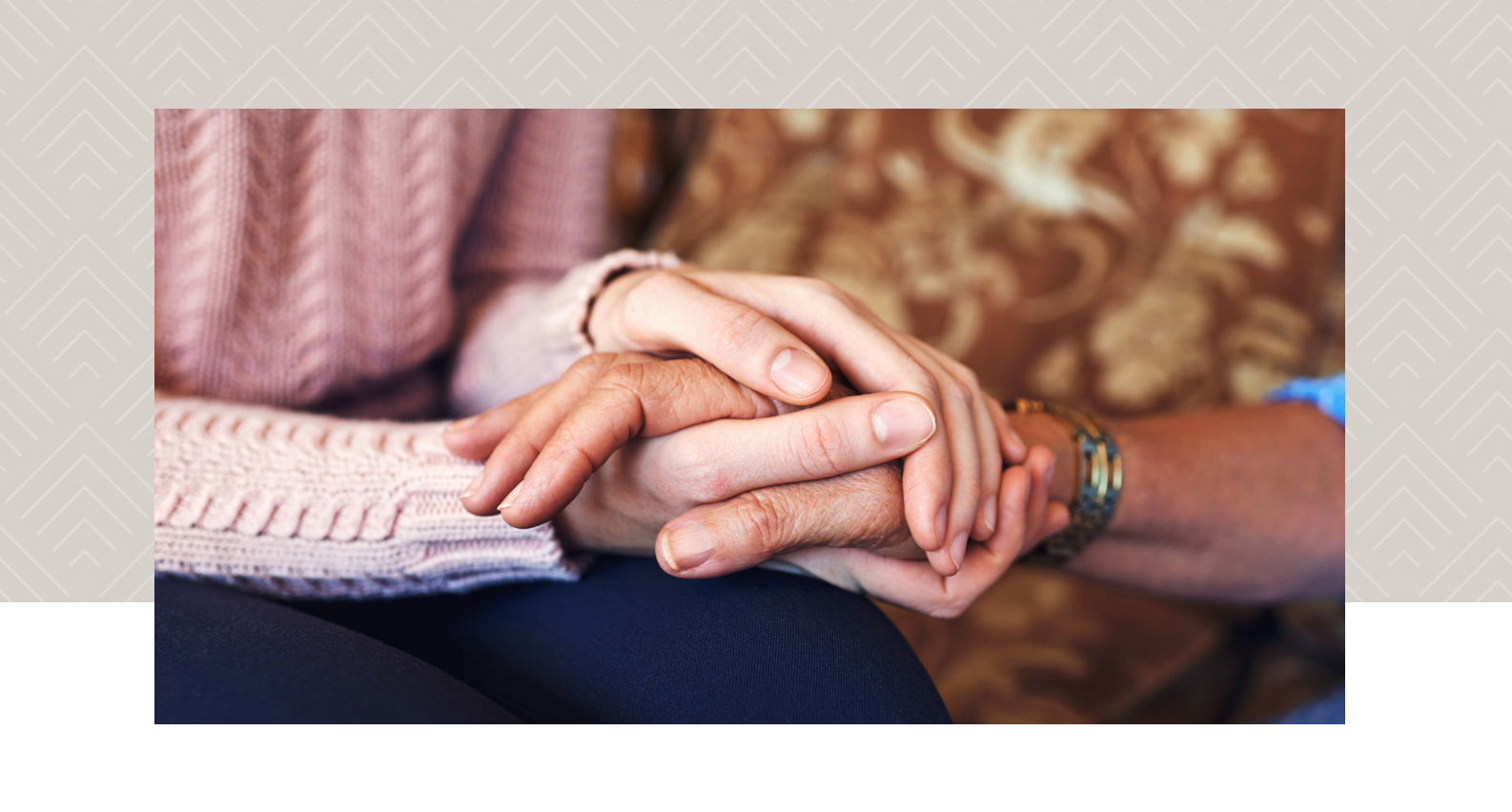Having a parent or loved one diagnosed with dementia typically comes with a whirlwind of emotions. Fear, denial, or feeling overwhelmed to name a few. The emotions might not have set in yet as you process next steps and identify how to support your loved one best.
Processing an Alzheimer’s or other dementia diagnosis is a lot to take in. Whether it comes as a shock or verifies what you suspected, you likely have a lot of questions.
Although this eBook might not answer every single question you have about caregiving for someone with Alzheimer’s or other forms of dementia, it will help determine next steps now that you have the diagnosis in hand.
In this eBook, we will cover various documents you should have in place after diagnosis (if you don’t already), resources for caregivers (regardless of how much support you provide), self-care tips, and long-term care considerations.
There are several documents you’ll want to have in place shortly after your family member’s diagnosis. It’s essential to draw up these documents while your loved one is still able to make decisions about their future. This Legal & Financial Document Locator is intended to be a helpful tool for use at home to organize your loved one’s legal and financial records.
Your loved one will gain peace of mind and a sense of control of their own future and your life will be a lot less stressful knowing you have a road map to their wishes.
A financial power of attorney (POA) is appointed by your loved one. They will manage your loved one’s affairs once they are unable to do so.
Also called an advanced directive or health care proxy, a health care POA is appointed by your loved one. They will speak for and manage your loved one’s health care once they are unable to do so.
A living will specifies your loved one’s end-of-life health care wishes. For example, do they want to be kept on life support, or would they like a feeding tube in the event they cannot eat? It also helps you from having to make difficult end-of-life decisions for them.
If your loved one doesn’t have a will, now is the time to get one. It will ensure that their assets, heirlooms, and more is distributed how they wish. It can avoid a lot of family dissent and/or hurt feelings later on.
If your loved one has a will, it’s time to make sure it reflects their current wishes.
In addition to legal records, it’s helpful to document other useful information about your loved one’s care that you would want another caregiver to know if you can’t be reached or in case of emergency. Examples of things to include:
This Emergency Medical Information Worksheet can help you organize your loved one’s most important medical details.
The following resources provide more detail about legal documents that ensure that your loved one’s wishes are known.

Once you receive the diagnosis, you may feel alone and overwhelmed. Having a good support network you can turn to for advice and encouragement when you feel alone, overwhelmed, or even frustrated can ensure that, even on the toughest of days, you have the support you need to support your loved one.
Here are some ways to expand your network of support:
Facebook groups, for example, provide support at any time. If you can’t sleep at 3 a.m. or have a question at 9 p.m., there’s likely someone online who will respond to your question, empathize with your situation, or acknowledge your pain.
Because most of those online are people just like you, be sure to supplement with a group moderated by an individual professionally trained in Alzheimer’s and dementia care.
If time and geography allow, nothing beats a face-to-face group. They provide support and information from fellow caregivers and often from professionals in dementia care. Some organizations may offer online support groups via Skype or similar technologies.
Start attending or participating in support groups as soon as you’re able. The more you learn and connect with others, the better you’ll be prepared for the journey ahead. You’ll also help others on their journeys!
There are many people and resources out there. Only you know what you need and want. Talk with others about what’s been helpful for them, but ultimately, what you need is personal to you.
The following is a starting list of caregiver resources:

Caring for a loved one with dementia can pose many challenges for families and caregivers.
As dementia progresses, it becomes more difficult to remember things, think clearly, communicate with others, and take care of yourself. Dementia can also cause mood swings and even change a person’s personality and behavior.
Caring for a loved one with Alzheimer’s or other forms of dementia is a big commitment, and there are many things to consider. If you haven’t decided, here are a few things to think about.
It’s completely natural if you’re feeling conflicted. Take the time to decide what’s best for them and for you.

Whether you’re the primary caregiver or you share caregiving responsibilities with others, taking care of yourself is likely the last thing you think about.
Let’s put things into perspective a bit.
We’re all familiar with it — the part of the pre-flight instructions where they say, “Put your own oxygen mask on before assisting others.” Why? Because it’s impossible to give 100 percent to taking care of another if your emotional or physical health is suffering.
This sounds dire, but most of us put self-care last no matter our circumstances. When you’re caring for your loved one with dementia — a disease that lasts years — not caring for yourself can lead to caregiver stress and burnout.
Keep an eye out for these symptoms. They’re early warning signs that you need to apply self-care first aid now, before you burn out.
Do you:
If you have any of the following, it’s time to ask for help:
It’s not easy to carve out an hour each week for “me time.” It may seem self-indulgent. Considering how stress can negatively impact your physical and emotional well-being, this time is really preventative care. You’ll reconnect with yourself and recharge for caregiving — and all the other aspects of your life.
Take a dance class or go dancing, play an instrument, color, do woodworking, knit, paint, draw. The possibilities are endless. It doesn’t matter if the end product is “good.” The point is the doing. Creative activities help you express yourself as you outside any of your other responsibilities or roles.
It’s easy to disconnect from friends and social activities when you’re caring for a loved one. Make a date with a friend once a month. Meet for coffee, see a movie, take a walk. You’ll connect to other parts of yourself, beyond being a caregiver.
Have you noticed how rare quiet is? People talking, TV, appliances running, traffic outside. Even when it isn’t “noisy,” over time, noise can overwhelm. Quiet time gives you time to recharge and the space to reconnect with your whole self. Meditation and prayer are two examples. There are many free or low-cost instructional apps and videos to guide you.
There are many things you can do quickly each day to lighten your mood and relieve stress.
Watch a funny cat video, look at a favorite cartoon, tell a joke, or read something that makes you laugh. Laughing releases endorphins, which make us feel happy and help lower stress.
Sit or stand upright. Breathe in through your nose to the count of four. Breathe out through your nose to the count of four. Repeat several times. Focusing on your breathing is a great way to calm your body and mind. There are many free and low-cost tools to help such as phone apps and YouTube videos.
When you concentrate on a crossword or sudoku puzzle, it’s hard to focus on other things. Your mind can go on a little vacation from your cares and worries.
Lastly, remember:
There’s a wealth of resources about self-care. These two will get you started:

There’s a lot to do and digest right now. In the not too distant future, however, you’ll want to begin talking with your loved one about long-term plans.
At some point, your loved one’s needs may outgrow the care you’re able to provide. What might that look like in your case? At what point should you think about memory care?
Memory care is specially designed for those with dementia. Memory care communities can vary dramatically. The best facilities provide:
If you choose to tour a community, be sure to make scheduled and unscheduled visits. Unscheduled visits will show you whether the day-to-day matches what you saw on your tour.
“Is it time?” It’s a difficult and emotional question. It’s important to be honest with yourself. Sometimes your loved one’s care becomes more than you can handle. Every situation and caregiver is different.
If your loved one is experiencing any of these, it’s time to consider memory care:
Does your loved one leave the house? This can be quite dangerous because your loved one might not remember where they live or how to get there, even in familiar surroundings.
Does your loved one need help moving, for example, in and out of the bathtub? Are you able to do this without hurting yourself?
Does your loved one’s mood change near sunset? Do they become fearful, agitated, sad? Do they lash out?
If you have or plan to become the primary caregiver, at some point the stress of caring for your loved one or their daily needs might become too much for you. There’s no shame in saying, “I can’t do this anymore.”
Being prepared for the day where your loved one might need more help and support that you can offer alone allows you to have a plan in place that makes a possible transition easier on both you and the person you are caring for.
Also, take into consideration how much input you’d like to have from your loved one. Beginning your research early means you're able to discuss with your loved one what the day might look like when you need additional support. It also allows them to determine how involved they’d like to be in long-term care planning.
